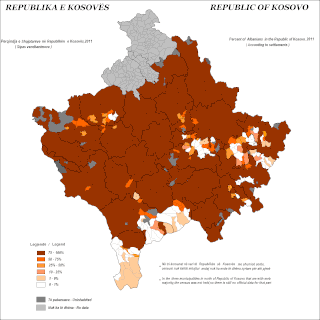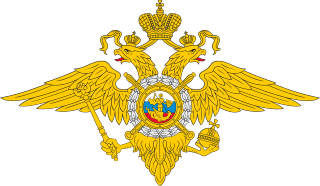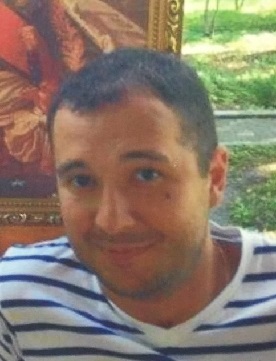Related Research Articles

Identity theft, identity piracy or identity infringement occurs when someone uses another's personal identifying information, like their name, identifying number, or credit card number, without their permission, to commit fraud or other crimes. The term identity theft was coined in 1964. Since that time, the definition of identity theft has been legally defined throughout both the U.K. and the U.S. as the theft of personally identifiable information. Identity theft deliberately uses someone else's identity as a method to gain financial advantages or obtain credit and other benefits. The person whose identity has been stolen may suffer adverse consequences, especially if they are falsely held responsible for the perpetrator's actions. Personally identifiable information generally includes a person's name, date of birth, social security number, driver's license number, bank account or credit card numbers, PINs, electronic signatures, fingerprints, passwords, or any other information that can be used to access a person's financial resources.

Since the invention of locomotives in the early 19th century, trains have often been the target of robbery, in which the goal is to steal money or other valuables. Train robbery was especially common during the 19th century and is commonly associated with gangs of outlaws in the American Old West. It has continued into the 21st century, with criminals usually targeting freight trains carrying commercial cargo, or targeting passengers of public transportation for their valuables.
The Russian mafia, otherwise referred to as Bratva, is a collective of various organized crime related elements originating in the former Soviet Union (FSU). Any of the mafia's groups may be referred to as an "Organized Criminal Group" (OPG). This is sometimes modified to include a specific name, such as the Orekhovskaya OPG. The "P" in the initialism comes from the Russian word for criminal: prestupnaya. Sometimes, the Russian word is dropped in favour of a full translation, and OCG is used instead of OPG.

Art theft, sometimes called artnapping, is the stealing of paintings, sculptures, or other forms of visual art from galleries, museums or other public and private locations. Stolen art is often resold or used by criminals as collateral to secure loans. Only a small percentage of stolen art is recovered—an estimated 10%. Many nations operate police squads to investigate art theft and illegal trade in stolen art and antiquities.

Vitaliy Vladasovich Grachev or Vitaliy Vladasovych Grachov, known professionally as Vitas, is a Russian singer. Vitas is known for his falsetto and his eclectic musical style, which incorporates elements of operatic pop, techno, dance, classical, jazz, and folk.
Luhanskteplovoz, earlier known as Voroshilovgrad Locomotive Works is a large industrial company in Luhansk, Ukraine, manufacturing locomotives, multiple unit trains as well as other heavy equipment. Due to the war in Donbas it has not been operating since March 2015. According to media reports, by late 2015 the works were looted and completely inoperational.
The Serbian mafia, or Serbian organized crime, are various criminal organizations based in Serbia or composed of ethnic Serbs in the former Yugoslavia and Serbian diaspora. The organizations are primarily involved in smuggling, arms trafficking, drug trafficking, human trafficking, assassinations, heists, assault, protection rackets, murder, money laundering and illegal gambling. Ethnic Serb organized crime groups are organized horizontally; higher-ranked members are not necessarily coordinated by any leader. The Serbian mafia is estimated to earn over €200 billion annually, with its annual earnings on the cocaine market in Europe worth €5.4 billion. According to criminologists and law enforcement authorities, the Serbian mafia is the most powerful in Europe.

The Ćuška massacre was the killing of 41 Kosovo Albanian civilians, all men aged 19 to 69, by Serbian security forces, the Yugoslav Army and paramilitaries on 14 May 1999 during the Kosovo War. On 13 March 2010, the Serbian war crimes prosecutor announced that nine men had been arrested for their role in the massacre and stated that a total of 26 men were under investigation for murder and theft at Ćuška.

Crime in Russia refers to the multivalent issues of organized crime, extensive political and police corruption, and all aspects of criminality at play in Russia. Violent crime in Siberia is much more apparent than in Western Russia.

The Internal Troops of the Ministry for Internal Affairs of the Russian Federation was a paramilitary force of the Ministry of Internal Affairs of Russia from 1991 to 2016.

Valery Vasilyevich Gerasimov is a Russian army general serving as the Chief of the General Staff of the Russian Armed Forces and First Deputy Minister of Defence.

The National Guard of Ukraine is the Ukrainian national gendarmerie and internal military force. It is part of the Ministry of Internal Affairs, responsible for public security. Originally created as an agency under the direct control of the Verkhovna Rada on 4 November 1991, following Ukrainian independence, it was later disbanded and merged into the Internal Troops of Ukraine in 2000 by then-President Leonid Kuchma as part of a "cost-saving" scheme. Following the 2014 Revolution of Dignity, amidst the Russian intervention, the National Guard was re-established, and the Internal Troops were disbanded.

Roman Valerevich Seleznev, also known by his hacker name Track2, is a Russian computer hacker. Seleznev was indicted in the United States in 2011, and was convicted of hacking into servers to steal credit-card data. His activities are estimated to have caused more than $169 million in damages to businesses and financial institutions. Seleznev was arrested on July 5, 2014, and was sentenced to 27 years in prison for wire fraud, intentional damage to a protected computer, and identity theft.

Carding is a term of the trafficking and unauthorized use of credit cards. The stolen credit cards or credit card numbers are then used to buy prepaid gift cards to cover up the tracks. Activities also encompass exploitation of personal data, and money laundering techniques. Modern carding sites have been described as full-service commercial entities.

The Big Maple Leaf (BML) is a $1 million (CAD) gold coin weighing 100 kilograms (220 lb). A set of five of these coins was produced by the Royal Canadian Mint (RCM) in 2007, at their Ottawa facility where the first BML produced remains in storage.

The Wagner Group, officially known as PMC Wagner, is a Russian state-funded private military company (PMC) controlled until 2023 by Yevgeny Prigozhin, a former close ally of Russia's president Vladimir Putin. The Wagner Group has used infrastructure of the Russian Armed Forces. Evidence suggests that Wagner has been used as a proxy by the Russian government, allowing it to have plausible deniability for military operations abroad, and hiding the true casualties of Russia's foreign interventions.

America is a sculpture created in 2016 by the Italian artist Maurizio Cattelan. An example of satirical participatory art, it is a fully functioning toilet made of 18-karat solid gold. It was stolen in 2019 from Blenheim Palace, where it was exhibited on loan from the permanent collection of the Solomon R. Guggenheim Museum.

On 25 November 2019, royal jewellery was stolen from the Green Vault museum within Dresden Castle in Dresden, Saxony, Germany. The stolen items include the 49-carat Dresden White Diamond, the diamond-laden breast star of the Polish Order of the White Eagle which belonged to the King of Poland, a hat clasp with a 16-carat diamond, a diamond epaulette, and a diamond-studded hilt containing nine large and 770 smaller diamonds, along with a matching scabbard. The missing items were of great cultural value to the State of Saxony and were described as priceless; other sources estimate the total value at about €1 billion. However, in the years following the burglary, more accurate estimates place the total value of the stolen items at around €113 million.

California nut crimes refers to the organised theft of nuts in California. Reported cases of nut theft go as far back as 2006 with the worth of stolen nuts being millions of dollars. The thefts demonstrate a high level of sophistication, encompassing identity theft and a deep understanding of computer security and logistics.
The Bitfinex cryptocurrency exchange was hacked in August 2016. 119,756 bitcoin, worth about US$72 million at the time, was stolen.
References
- ↑ "Golden days". www.ruarchive.com. 28 September 2013. Retrieved 2022-05-21.
- ↑ "The Gold". www.sovsekretno.ru. Retrieved 2022-05-21.
- ↑ "Crazy gold". veli.ks.ua. Retrieved 2022-05-21.
- ↑ "Crazy gold". veli.ks.ua. Retrieved 2022-05-21.
- ↑ "Gold thieves in war". www.kommersant.ru. 26 April 1997. Retrieved 2022-05-21.
- ↑ "Gold war" (PDF). lawinfo.ru. Retrieved 2022-05-21.